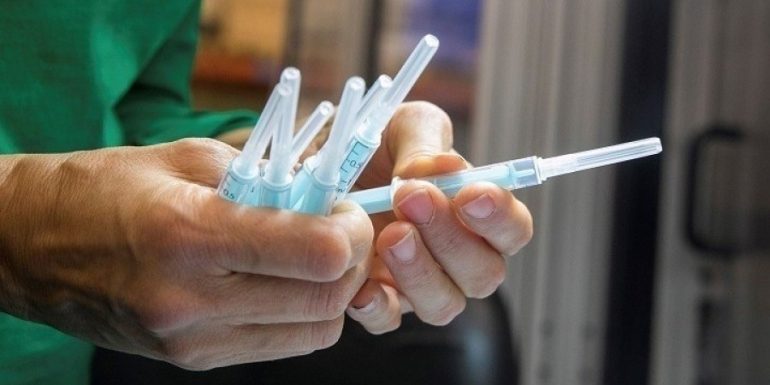Despite the high efficacy and rare side effects of mRNA technology vaccines, a significant proportion of the population in Europe and the United States is hesitant or reluctant to get vaccinated.
One of the reasons often cited as an inhibitory factor for vaccination is its potential negative effect on fertility. Because SARS-CoV-2 infection has been associated with a reduction in sperm quality and quantity parameters, a relatively small study from the US investigated changes in sperm parameters before and after administration of an mRNA vaccine.
The professors of the Therapeutic Clinic of the Medical School of the National and Kapodistrian University of Athens, Efstathios Kastritis and Thanos Dimopoulos (Rector of EKPA), summarize the data of this study.
This prospective study at the University of Miami (published in the journal JAMA) included healthy volunteers aged 18 to 50 who had planned to be vaccinated with mRNA vaccine. Participants were screened to ensure they had no underlying fertility problems and those with symptoms COVID-19 or with a positive test within 90 days were excluded from the study. Participants provided a sperm sample after 2 to 7 days of abstinence, before receiving the first dose of the vaccine, and approximately 70 days after the second dose.
Between 17 December 2020 and 12 January 2021, 45 male volunteers (mean age, 28 years) joined the survey. Samples for sperm reassessment were taken 75 days after the second dose of the vaccine. The study ended on April 24, 2021. The initial samples (before the vaccine) were taken after an average abstinence period of 2.8 days and the follow-up samples (after the 2nd dose) after a 3-day median abstinence. Of the 45 men, 21 (46,7%) received BNT162b2 (Pfizer vaccine) and 24 (53,3%) received mRNA-1273 (Moderna). The median number of sperm per ml of sperm before the first dose was 1 million / mL and the median number of total motile sperm was 26 million. After the second dose of the vaccine, the median number of sperm per ml of sperm increased to 36 million / mL (P = 30) and the median number of total motile sperm to 0,02 million (P = 44). Sperm volume and sperm motility also increased. Eight of the 0,001 men were oligospermic before vaccination (median concentration, 45 million / mL. Of these, 8,5 men had normal sperm concentration after the 7nd dose (median sperm concentration of 2 million / mL) and 22 person remained oligospermic.
None of the participants became azoospermic after the vaccine.
Essentially, this study concludes that vaccination with mRNA technology vaccines against COVID-19 does not affect any parameter related to sperm health. Also, because vaccines contain mRNA rather than live virus, it is unlikely that the vaccine will affect sperm parameters. Although the results showed statistically significant increases in all sperm parameters, the magnitude of this change is within the normal range. However, men with oligospermia did not show a further reduction. The main limitations of the study include the small number of men in the study who were young and healthy men and the relatively short follow-up (however, the study time frame includes the full sperm life cycle of about 70- 75 days).
Data from this study should also be compared with other studies that have examined the effect of COVID-19 infection on sperm production and quality. The ACE2 receptor through which the SARS-CoV-2 virus enters cells using the spike protein is abundant in the testes where spermatogenesis takes place. Typically, it is reported that sperm quality parameters appear to be adversely affected among male patients with confirmed COVID-19 compared with healthy controls, at least in the short term and are associated with significant disturbances in sperm volume, concentration, number, motility and morphology of sperm, sperm and number of sperm. The potential long-term effects of COVID-19 infection on fertility have not yet been assessed.
Source: Protothema.gr
